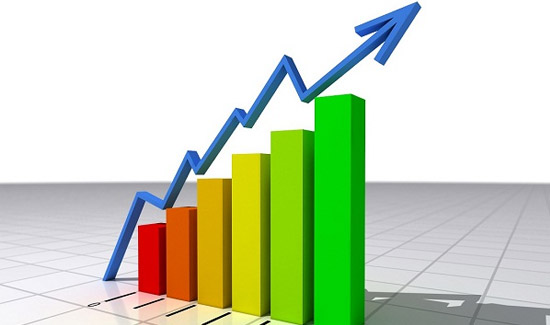Euro-area fragility ahown as economic growth falls short

By Bloomberg
The German and Italian economies expanded less than forecast last quarter and France’s stagnated, highlighting the fragility of the euro area’s recovery amid uncertainty over the outlook for the global economy.
German gross domestic product rose 0.4 percent, compared with an estimate of 0.5 percent in a Bloomberg survey. France posted zero growth and Italy just 0.2 percent, compared with predictions of 0.2 percent and 0.3 percent respectively. The numbers pose a downside risk for projections for a 0.4 percent expansion in the currency bloc.
With China jolting global markets by devaluing its currency and Greece on the verge of a new bailout program, the euro area’s nascent revival may yet struggle. European Central Bank policy makers meeting in July called the recovery “disappointing” and said they’re ready to adjust stimulus if needed, a summary of the discussions showed on Thursday.
“Business surveys have suggested that the euro-zone economy lost some momentum over recent months, which could reflect some fallout from the Greek crisis and potentially weakness in the Chinese economy,” said Nick Kounis, an economist at ABN Amro Bank NV in Amsterdam. “Nevertheless, there are plenty of domestic positives coming through and we think the euro-zone economy will regain momentum in the coming quarters.”
Economic growth in the Netherlands also fell short of estimates in the three months through June, at 0.1 percent compared with a median estimate of 0.3 percent. Portuguese GDP climbed 0.4 percent, compared with a prediction of 0.5 percent.
Euro-area GDP is due from the European Union’s statistics office in Luxembourg at 11 a.m. on Friday.
Key Pillar
German growth was driven by net exports and private consumption, the statistics office said, while investment, especially in construction, was a drag.
“Exports are a key pillar for the German economy and global demand is currently too low to sustain it at full speed,” said Johannes Gareis, an economist at Natixis SA in Frankfurt. “But the German economy finds itself generally in a comfortable situation and in fact it is set to profit from increasing tailwinds in the coming months.”
France’s stagnation marks the first time in a year that the economy has failed to grow. Consumer spending rose just 0.1 percent in second quarter after climbing 0.9 percent in the previous three months.
Dutch growth also disappointed, with the country’s GDP expanding 0.1 percent in the three months through June.
Spain, Greece
Spain and Greece have provided the high points of the period’s GDP so far. Spain’s economy expanded 1 percent, the fastest pace in more than eight years, data showed last month.
Greece, which imposed capital controls and came close to leaving the currency bloc during a standoff with creditors this year, said on Thursday that its GDP rose 0.8 percent. The surprise surge, led by consumer spending and tourism, is seen by analysts as a blip amid a crumbling economy.
The International Monetary Fund last month cut its forecast for global growth, singling out financial-market turbulence in China and Greece. China sent shock waves through global markets on Tuesday by devaluing the yuan.
The Bundesbank said in July that the German economy is supported by strong consumption and wage increases. Factory orders point to a manufacturing revival in coming months.
Zalando SE, the German online fashion retailer, said on Thursday that sales will rise as much 31 percent this year and vowed to hire more staff and build warehouses to spur growth. ThyssenKrupp AG, Germany’s largest steelmaker, reported third- quarter profit that beat analysts’ estimates.
“Germany’s fundamentals remain solid and it is in a position to look through the volatility,” said Andreas Rees, an economist at UniCredit SpA in Frankfurt. “Its economy is driven by both exports and internal demand and this means that as long as the euro area continues to recover, there shouldn’t be a problem.”
